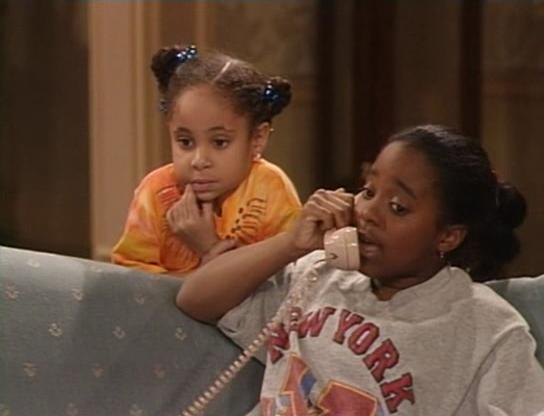
The Cosby Show is undoubtedly one of the most influential sitcoms in television history. Premiering in 1984, it introduced viewers to the Huxtable family, led by the beloved Dr. Heathcliff Huxtable (Bill Cosby) and his brilliant wife, Clair Huxtable (Phylicia Rashad). Set in Brooklyn, New York, the show centered around the daily lives of an upper-middle-class African American family, tackling everything from family dynamics to societal issues, all while making audiences laugh and reflect.
But The Cosby Show was more than just a sitcom—it was a cultural milestone that broke barriers and changed the way African American families were portrayed on television. Nearly three decades after it went off the air, the legacy of The Cosby Show continues to shape how we view family sitcoms, diversity in media, and the portrayal of African American life in the entertainment industry.
A Groundbreaking Family Sitcom
At the time of its premiere, The Cosby Show was unlike anything television had ever seen. The show defied the typical stereotypes of African American families portrayed in media. Instead of focusing on poverty or struggles, the Huxtable family was portrayed as educated, successful, and loving. Dr. Huxtable, an obstetrician, and Clair, a lawyer, provided a positive and aspirational image of what an African American family could be.
What made The Cosby Show so groundbreaking was not just its portrayal of a Black family but also its portrayal of a family in general. The show was a celebration of strong familial bonds, respect, and unconditional love. Each episode featured humorous moments that came from the relatable experiences of raising children, navigating marriage, and balancing personal and professional lives.
The Huxtables weren’t perfect, but they were real. From Theo’s struggles with school to Denise’s rebellious phase, the show dealt with universal family issues in a way that was both entertaining and heartwarming. The show also introduced memorable characters like Rudy (Keshia Knight Pulliam), Sondra (Sabrina Le Beauf), and Vanessa (Tempestt Bledsoe), who grew up on screen and became household names.
A Shift in Representation
Before The Cosby Show, African American families were largely underrepresented on primetime television, and when they were depicted, they were often shown in a stereotypical light. The Huxtables were a breakthrough because they presented an alternative narrative, one where Black characters were not only successful but also well-rounded individuals facing the same challenges as any other family.
The show’s success opened doors for more diverse representations in the media. It helped pave the way for other iconic shows like A Different World (a spinoff of The Cosby Show), Family Matters, and The Fresh Prince of Bel-Air. In a time when television was dominated by shows about white families, The Cosby Show proved that audiences were ready for stories about diverse families.
A Lasting Impact on Popular Culture
Even though The Cosby Show ended in 1992, its influence is still felt today. The show’s impact on pop culture is immeasurable. From catchphrases like “You know you’re in trouble when…” to its memorable theme song by Bill Cosby and Quincy Jones, The Cosby Show became a part of the cultural fabric. Its characters have remained beloved figures in TV history, and their stories continue to inspire new generations of viewers.
The show also had a lasting effect on how future generations of actors viewed their roles. Many of the stars from The Cosby Show, including Bill Cosby, Phylicia Rashad, Malcolm-Jamal Warner, and Lisa Bonet, went on to achieve successful careers in both television and film. They became role models for young actors, showing that there was more than one way to tell a story and that diverse voices were important in every medium.
Revisiting the Huxtables in Today’s World
The question remains: would The Cosby Show work in today’s television landscape? In an era of reboots and remakes, the desire for a Cosby Show revival or reunion is strong. While it’s unlikely that the show would return in its original form, there’s still a longing to see the Huxtables again. Fans often dream of a reunion special or a reboot that would showcase the Huxtable children as adults with their own families, facing new challenges in a rapidly changing world.
However, the complexity of Bill Cosby’s legal issues complicates the possibility of such a project. Cosby’s conviction in 2018 for sexual assault tarnished his legacy and led to many people distancing themselves from the show. Some believe that the show’s positive messages should be kept separate from Cosby’s personal actions, while others feel conflicted about celebrating the work of someone with such a controversial past.
Despite this, the cultural significance of The Cosby Show cannot be erased. It remains a trailblazer for representation in the media and a reminder of the power of family-centered storytelling. Its messages of love, respect, and unity are still relevant, and the show’s ability to make people laugh while also teaching valuable life lessons is what made it so special.
Conclusion
The Cosby Show changed the landscape of television, introducing audiences to a new kind of family dynamic that had never been seen before. The Huxtables showed viewers that Black families could be portrayed as successful, loving, and multi-dimensional. While the controversies surrounding Bill Cosby have impacted the show’s legacy, the influence of The Cosby Show remains undeniable. It helped shape the future of television and continue to be remembered fondly by fans all over the world.
As we look back on its incredible run, The Cosby Show stands as a testament to the power of representation, the importance of diverse storytelling, and the enduring legacy of a family that made us laugh, think, and, most importantly, feel.
